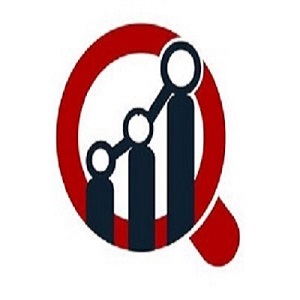Opioid Withdrawal Treatment Market Opportunity Assessment, Market Challenges, Key vendor analysis, Vendor landscape by 2030
The global Opioid Withdrawal Treatments Market will rise to USD 2.61 billion by the end of the year 2030. The market
valuation will grow at the CAGR rate of 10.1% over the upcoming period.
The global opioid withdrawal treatment market is mainly driven by the growing
opioid epidemic in North America and Europe and the increasing awareness about
various treatments that can be taken to reduce opioid withdrawal symptoms. The
high alertness in the U.S. and Europe with regard to the overuse of prescribed opioid
drugs is likely to remain a major driver for the opioid withdrawal treatment
market over the forecast period. The growing healthcare industry and the
growing prescription of opioid drugs in these regions is likely to remain a key
driver for the opioid withdrawal treatment market over the forecast period.
Opioids are usually prescribed for pain
management and have become a widely popular class of medications due to the
absence of synthetic classes of drugs to perform the same task. Usually, the
healthcare industry uses a natural compound as a platform for further
variations and comes up with synthetic drug formulations. However, the industry
has been unable to do that with regard to opioid drugs, as mimicking the
analgesic effects of natural opioids has proved too difficult. This has driven
prescription figures for opioids and is likely to remain a major driver for the
opioid withdrawal treatment market over the forecast period.
Competitive Analysis:
Leading Opioid Withdrawal Treatments Market Players include
Bayer AG, F. Hoffman-La Roche Ltd., Johnson & Johnson Services, Sanofi,
Novartis, Pfizer Inc., Teva Pharmaceutical Industries Ltd., and Merck & Co.
Segmentation:
The global opioid withdrawal treatment market
has been segmented on the basis of drug type, distribution channel, and region.
·
By drug type, the opioid withdrawal treatment market has been segmented
into nonsteroidal anti-inflammatory drugs, anti-nausea medications,
analgesics, natural sleep supplements, and others.
·
On the basis of distribution channel, the market has been segmented into hospital
pharmacy, retail pharmacies, and online stores.
Regional Analysis:
The Americas is likely to remain the leading
regional market for opioid withdrawal treatments over the forecast period due
to the growing demand for opioid withdrawal treatments in the region. According
to the CDC, two thirds of the deaths attributed to drug overdoses in the U.S.
in 2016 involved an opioid. This is the major driver for the opioid withdrawal
treatment market in North America, as the increasing awareness about the involvement
of opioids in drug overdose cases is likely to be a major driver for the opioid
withdrawal treatment market over the forecast period. Increasing awareness
about NSAIDs and analgesics is likely to be a major driver for the Americas
market for opioid withdrawal treatment market in the Americas over the forecast
period.
Increasing development of other pain
management medications in North America is also likely to be a major driver for
the opioid withdrawal treatment market in North America over the forecast
period. The major growth driver for the opioid withdrawal treatment market has
been the absence of other classes of pain medications to deal with the pain
problem without using opioids. Mankind’s dependence on opioids has thus
resulted in a growing demand for the development of other pain medication
classes, which can deliver comparable relief without using opiates. North
America is likely to be a major center for the development of these drugs in
the coming years, leading to a growing demand from the opioid withdrawal
treatment market over the forecast period.
Europe accounts for the second largest market
for opioid withdrawal treatments and is likely to retain a considerable share
in the global opioid withdrawal treatment market over the forecast period.
Industry News-
·
In August 2019, Boston Medical Center researchers found the use of naltrexone to be
favorable for both mother and child when treating opioid use disorders in
pregnant women.
·
In 2019, Continuum Recovery Center developed the first FDA-approved medical
device for clients struggling with opioid dependency. The device is the first
non-pharmaceutical, non-implantable device in the market space.
Related Reports: https://www.linkedin.com/pulse/medical-device-cleaning-market-growth-opportunities-arpita-gupta-1c
https://famenest.com/read-blog/20891
About US:
Market Research Future (MRFR) enable
customers to unravel the complexity of various industries through Cooked
Research Report (CRR), Half-Cooked Research Reports (HCRR), Raw Research
Reports (3R), Continuous-Feed Research (CFR), and Market Research &
Consulting Services.
Contact us:
Market Research Future (part of Wantstats
Research and Media Private Limited),
99 Hudson Street,5Th Floor, New York,
New York 10013




Comments
Post a Comment